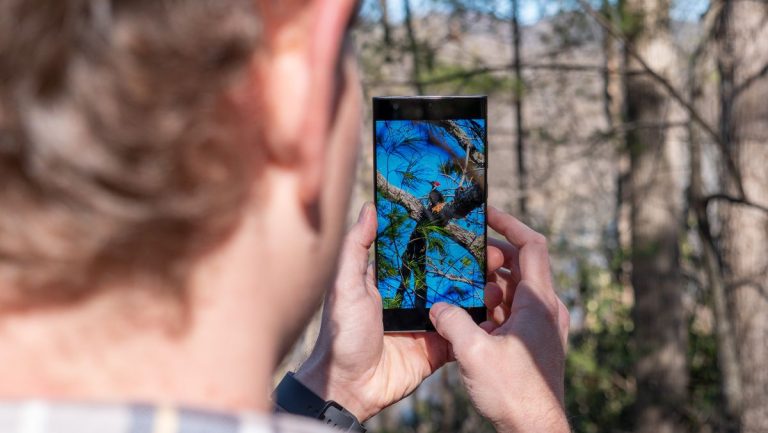

There have been endless debates about whether Apple’s iPhone cameras are better, or whether Samsung does cameras better. While the talk over the years has been about the sensors themselves, computational photography has also come to be a major part of mobile phone imaging. While we know that nearly all smartphones have some sort of computational photography, it appears Samsung could have been using it a bit more than previously expected.
A new Reddit post claims that the “super zoom” moon photos we see from the higher-end Samsung phones may be fake, using image replacement over the actual picture users click.
Too much computational photography?
Reddit user ibreakphotos discovers that Samsung’s ‘Space Zoom’ simply replaces user’s moon photos with higher-res images of the moon through a clever testing process. https://t.co/5cLybMld5sThis isn’t computational photography — it’s inserting imagery that simply isn’t there. pic.twitter.com/67UyyUa7cXMarch 11, 2023
It’s safe to say that Samsung’s moon photography had some post-processing going on, but the post claims that the detail in the images might be more from the computation than the captured details.
Redditor u/ibreakphotos (opens in new tab) says they downloaded an image of the moon, blurred it to get rid of the details, and put it up on their monitor. They then used a Samsung phone to photograph the image on the monitor. The final image came out with a bunch of detail, which makes it look like the prost-processing is doing all the heavy lifting on the details in these images.
To be fair, Samsung has explained how moon photos are processed in a blog post (opens in new tab) before. To simplify, the phone’s camera will recognize the moon, keep focus on it, and take a picture. The post-processing is done using a convolutional neural network trained with a lot of high-resolution images of the moon. The algorithm will use the detail learned from those images and apply it over the moon recognized in the photos.
In this new example, however, the phone took an image of an image and went ahead with the processing anyway. It seems like you can’t quite fault the phone, as you should temper your expectations when it comes to smartphone photography. Regardless this seems to have sparked the debate about whether the cameras on the best iPhones should be considered superior to those on Samsung phones.